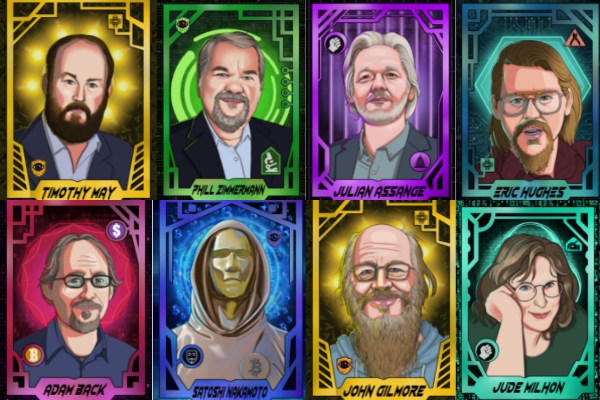Cipher Punks NFTs launched by startup ItsBlockchain have raised a wave of protests that convinced ItsBlockchain and OpenSea to remove the collection put on sale in recent days.
It’s a case destined to set the stage for its possible legal implications.
The NFT Cipher Punks collection
The collection launched last December 25 by ItsBlockchain.com was supposed to celebrate the fathers of blockchain and cryptocurrency. It was a rare collection: 450 NFTs depicting 45 crypto and decentralization figures, privacy protectors, from the 1970s to the present. They were present from Satoshi Nakamoto to Paul Kocher, passing by characters more “questionable” for some personal events.
But the community rose against this drop because many images had not been authorized. The creators themselves admitted in a post on Medium:
“It came to our notice that many Cypher Punks didn’t like the idea of their images being used as NFTs and digital drawings. We were not aware of the likeness laws in NFTs as the market is not regulated. It’s our mistake. We have to own up to it.”
Cypher Punks opposed to NFTs
The collection stars were likely unaware that their image would be turned into non-fungible tokens. Although ItsBlockchain intended to share and celebrate their story, they didn’t take it well. Not least because they weren’t asked for any consent. From the team, they admit:
“Unfortunately, many Cypher Punks were against this idea and didn’t want to participate in any way. We respect that. We really do. So we apologize to each and every Cypher Punk for not taking consent and creating your NFTs.”
So, despite the dissemination purpose and the promise to donate some of the revenue into Bitcoin development, the story ended with the team having to withdraw the collection, buy back the NFTs they had already purchased, burn everything, and refund the buyers who had already invested.

NFT and copyright
This story once again opens up the thorny issue of copyright and image rights in the NFT industry.
In this case, by the creators’ admission, the NFTs had been mined without the consent of the protagonists who did not like it. The problem is that in a deregulated sector like the one of NFT, there are no laws that establish a procedure, and who wants to launch NFT can only rely on originality and common sense. Common sense that in this case, has been lacking.
Known causes
The fact that there are no laws does not help solve the controversies that have already arisen and see famous people involved. For example, Quentin Tarantino has been sued by Miramax, who did not like the NFT collection launched by the director inspired by the cult film Pulp Fiction.
Even Jay-Z‘s first album ended at the center of a legal dispute: his former partner Damon Dash transformed it into NFT, but the record company took him to court.
Similar doubts were raised by the sale in NFT format of Banksy’s mural depicting the gorilla with the pink mask because it was not the artist who issued it but another company.
Ultimately, if thanks to blockchain we can have unique and original works of art, the question of intellectual property remains unresolved at the moment.
The post Lack of consent: NFT Cipher Punks removed from OpenSea appeared first on The Cryptonomist.




















